The Best Movies of the Decade
The CommRadio Arts & Entertainment staff counts down its top 10 movies of the decade.
.png&fid=15&d=16628)
“Moonlight” (2016)
In the film industry, sometimes it’s forgotten the power and impact that a film can have on not just the industry itself, but society. Amidst the sea of unfortunate sequels, Disney live action films and remakes, this decade brought us one of the most beautifully shot, directed, acted and written films seen in a long time.
“Moonlight” was written and directed by esteemed filmmaker Barry Jenkins, rightfully earning him the Academy Award for Best Picture as well as a direction nomination. Broken up into three acts, the film leads us through the life of Chiron from childhood to adulthood, and the difficulties and abuse he received from his mother and classmates while simultaneously struggling with his sexuality, identity and emotions.
This film carries multiple different themes throughout, intersecting each one with ease, patience and grace despite the heaviness of the topics. Issues discussed were ones of black masculinity, sexuality, vulnerability and more. It is brilliantly shot, remaining as smooth and beautiful as the Miami beaches the film features.
It is also incredibly well written, adapting the screenplay from an unpublished play by Tarell Alvin McCraney titled "In the Moonlight Black Boys Look Blue." Acting wise, just as “Moonlight” is brilliantly shot, directed and written, the film is brilliantly casted.
The small cast showcases amazing talent not seen in the industry thus far, specifically Marhershala Ali who received an Academy Award for Best Supporting Actor. The heavy subject of the film matter brings out the depth and perception that forces audience members to recognize the struggle of millions of Chiron’s in the world, not just the one on screen. “Moonlight” can easily call itself one of, if not the, best film of the decade. —Lilly Adams
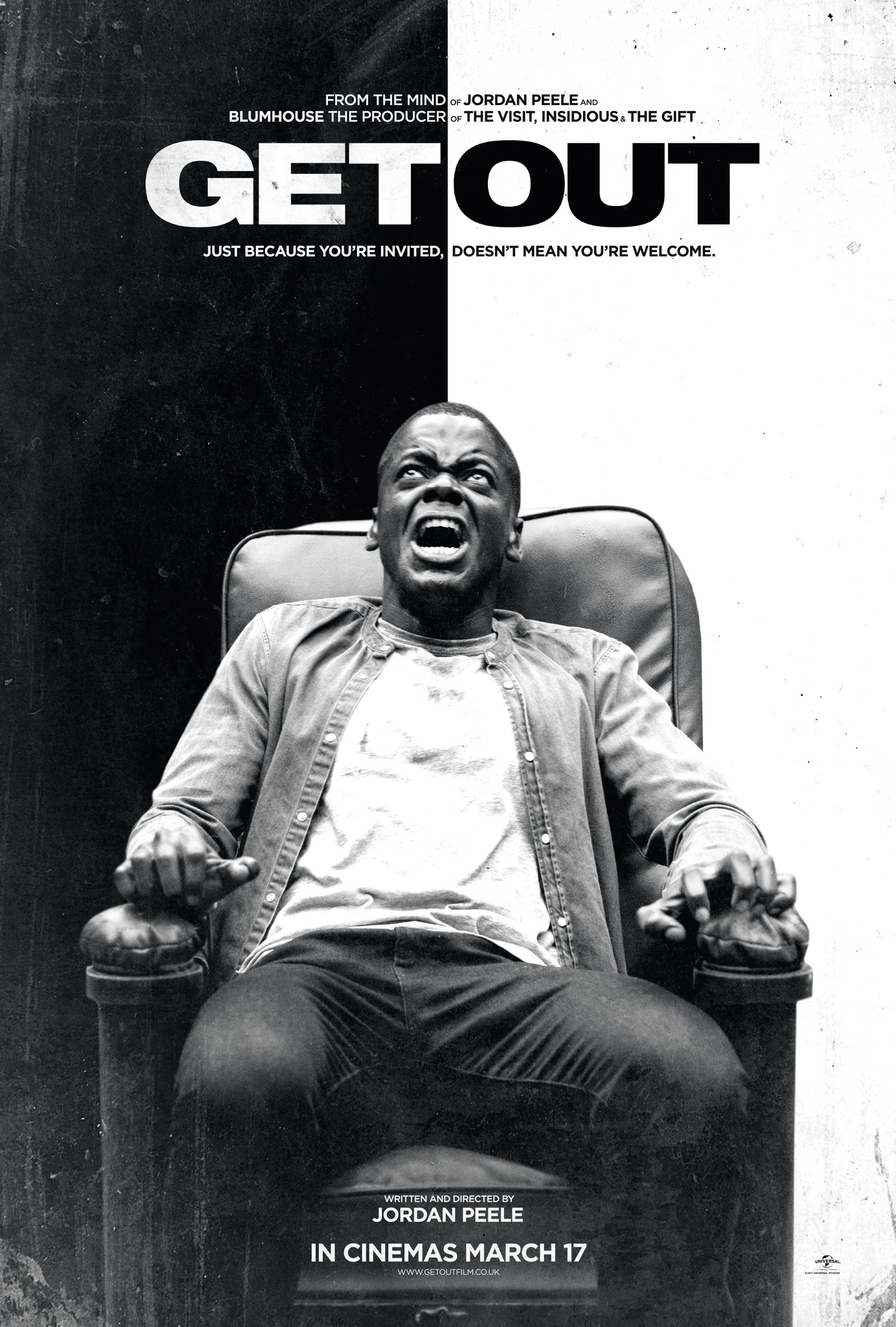
“Get Out” (2017)
The incredibly impressive debut of director Jordan Peele, “Get Out” is one of the most refreshing horror films to arrive this decade. Surprising many with his seemingly sudden shift from comedy to horror, Peele proved that he had a directorial voice unlike any other in what has become an undisputed necessary stepping stone in the advancement of the horror genre.
Bringing all too real themes of racism and dehumanization into the fold, Peele presented the world with an unsettling depiction of the shady invasive underhand of our society’s lingering notions of white dominance. Notably bringing an often-unseen African American viewpoint to the horror genre, Peele allows a series of real-life and fictional horrors of racism to ensnare a black male lead.
Peele’s story telling and ability to pace out the film’s disturbing tension is absolutely astounding given that “Get Out” marks his humble beginnings as a film maker. Peele still manages however to sprinkle in dashes of comedic relief through the dynamics of his fantastically written characters. The film’s storyline and acting is superb and the film demands several viewings in order to appreciate the entire pleasure of the viewing experience.
An outstanding start to Peele’s ventures as a film maker, “Get Out” is an impressive testament to not only Peele’s voice as a director, but the growing desire for more unheard voices to be given a platform in Hollywood. “Get Out” proves that there is a growing desire to see films made by those from diverse backgrounds, and that the world needs to allow these perspectives access to direct for our film screens. —Scott Perdue
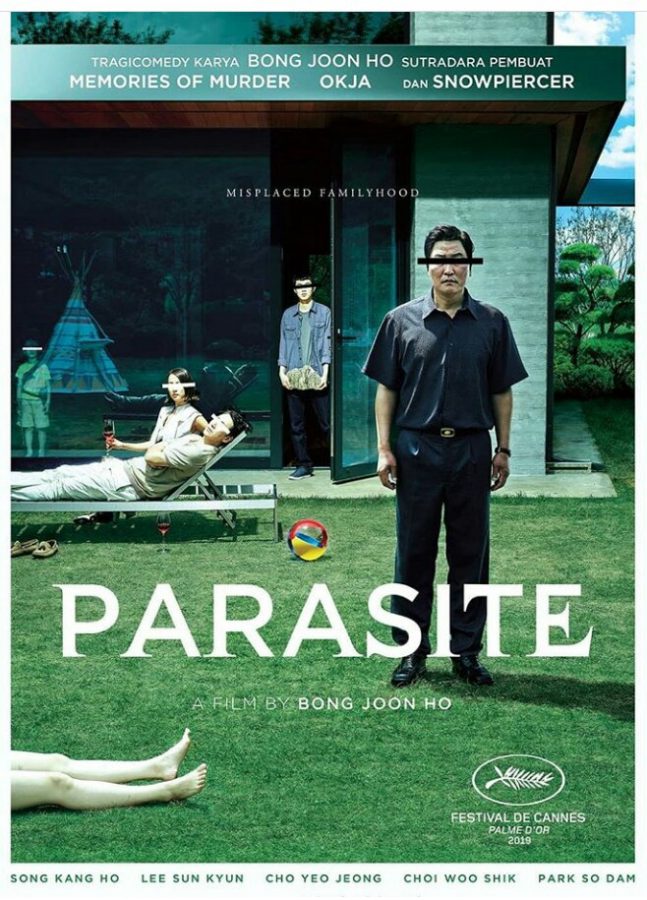
“Parasite” (2019)
Despite being released at the very end of the decade, “Parasite” has already secured a place in the industry as being not only the best film of 2019, but one of the best of the decade.
The film guides the audience through the story of a lower class family desperate to make money, and each family member begins infiltrating a wealthy upper class family in order to satisfy their needs. With its unique and intelligent storytelling methods, the film begins with focusing the audience’s attention on one thing at a time in each scene, all things falling into place perfectly; almost painting a picture with it dialogue, acting, motifs and all around cleverness.
“Parasite” keeps it’s pace and never loses its steady rhythm. The filmmakers made clever decisions to manipulate the audience into trusting the main characters and supporting the horrible decisions they make throughout the film. They keep our attention fixated on the fact that the characters are a part of the lower class to distract from the character's constant lying, scheming, and even murder.
This showcase of classism is unique in that the rich people in the film seem to be the “good,” and the poor seem to be the “bad,” yet audience members still are in constant support for our main characters and want to see them stretch beyond the unfortunate lifestyle they have found themselves in. This type of movie manipulation once seemed like a forgotten tactic, but “Parasite” brings the tactic and further filmmaking brilliance back to theaters with full force. —Lilly Adams

“Roma” (2018)
While 2018 is widely accepted to be one of the worst years for film in this recent decade, not all films from that year fall under that judgement. “Roma," released in 2018, is one of the most beautiful, yet significantly overlooked films of the decade.
The film follows the story of young Cleo Gutiérrez, an indigenous live-in maid in an affluent household in the Colonia Roma neighborhood of Mexico City in the early 1970s. It is a very accurate take on young Mexican women during this time period, mainly because of the personal and intimate nature being based on director Alfonso Curón’s childhood growing up in the same circumstances. Curón also wrote, shot, produced, and co-edited the film, showing his obvious passion for Cleo’s story to be told.
Cleo winds up pregnant, alone and scared, like many women did and still do, and the film begins to tell the difficult, important and beautiful story of her journey. Shot in black and white, the film is a masterpiece of all aspects of filmmaking; cinematography, acting, writing, direction and more. “Roma” swept the Academy Awards in terms of nominations, but also winning three for direction, cinematography and foreign language.
While difficult to watch at times, “Roma” stretches beyond being beautifully shot and written, and lands on the importance of women’s stories like Cleo to be told, which the film does perfectly, rightfully making it one of the best films of the decade. —Lilly Adams

“Call Me By Your Name” (2017)
Inspired by the 2007 novel, “Call Me By Your Name” is one of the rare films that can affect someone for a lifetime The story tugs at the hearts of all audiences despite its departure from a universal storyline, which is mostly thanks to the incredible acting talents of Timothee Chalamet and Armie Hammer.
Coming of age films are not scarce in any sense, though there are very few that follow the narrative of a member of the LGBTQ+ community finding their own identity and sexuality. This film, however, has already become a staple within the community in capturing the essence of change and growth.
There is not a single facet of this film that doesn’t elegantly carry the themes and meaning of the story well. The script is touching, particularly for its insistence on pushing the envelope. There is nothing that is comfortable about many of the film’s scenes and scenarios, yet they’re identifiable to everyone. “Call Me By Your Name” speaks maturely and truthfully about sex in a world too shy to comment on it. As a partner to the script, the cinematography is beautiful and adds symbolic relevance to each stage in Elio’s life and relationship.
Ultimately, the film comes down to the acting, as many of Chalamet’s films do. Every performance is carefully executed and done so with grace and charm. Film goers across the world will remember the last five minutes of “Call Me By Your Name” for the rest of their lives. —Jade Campos
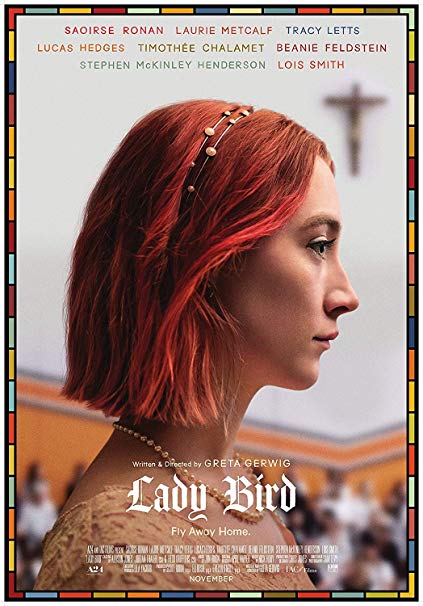

“Lady Bird” (2017)
“Lady Bird” is Greta Gerwig’s cinematic masterpiece, and an ovation to women across the world.
The film is a far cry from a typical coming of age film, especially for a young woman. There are only traces of a love story intertwined throughout the script. Rather, it is heavily dominated by Christine searching for her true identity by attempting to escape Sacramento, the only place she’s ever been.
“Lady Bird” is personal yet strangely universal all at once. It’s the experiences that all women experience as they grow up, but try their best not to talk about. Gerwig created a film that would capture all of the best and worst parts about being a teenager, with uncertainty of what the future may hold. The open ending is perhaps the greatest part about the film, as audiences can decide for themselves where Christine will end up, though they know she’ll always be happy.
The characters are flawless, even with all of the flaws that they are entangled in. Each one is plucked from someone’s life. The overbearing yet distant mother, the loyal yet misunderstanding best friend and the love interest who is cruel but not hateful. Christine is impeccable. She’s riddled with faults, but it’s why audiences can find a piece of themselves within her.
There is nothing that is ideal about “Lady Bird.” Her home life, friendships, academic goals or her relationship status fall short of perfection and lands right on being just enough. It’s a truthful and beautiful lesson of life in which one can never expect everything to go right, but they’ll end up being happy enough with all of the little mistakes. —Jade Campos
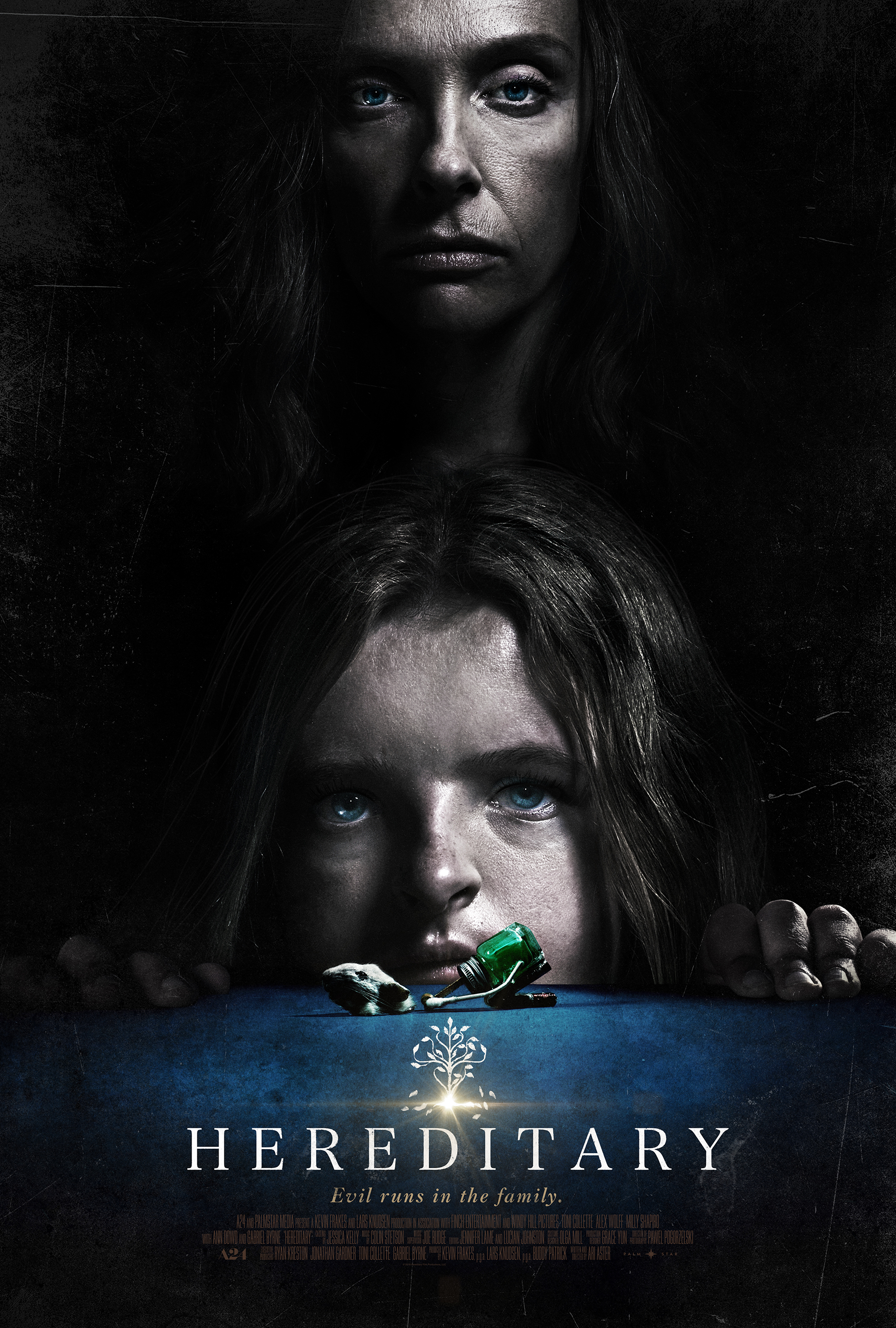
“Hereditary” (2018)
There is a constant struggle within the film industry regarding the horror genre, and how to balance the perfect amount of intelligence and realism with the stereotypical gore, creatures and discomfort. Within the last decade, horror movies have become more original, creative, tasteful and constantly combining the balanced amount of blood and unease. However, no other film of the decade balanced these themes better than “Hereditary.”
Telling the story of a family grieving the death of their estranged grandmother/mother, a series of unfortunate and mystical events unfold into one of the scariest movies of the decade. What is so absolutely terrifying about the film is it’s no boundaries depiction of one of the most horrifying emotions that someone can have; grief. “Hereditary,” and director Ari Aster’s films in general, handle the emotion in such a raw and realistic way, it’s impossible to not genuinely feel for the characters and the situations they find themselves in.
Film’s do not need an unnecessary amount of gore, jump scares, swelling soundtracks and constant stereotypes when there is horror constantly surrounding us, a tactic that Aster has nailed perfectly in his short career so far. With Aster’s brilliant mind, screenplay and direction, combined with Toni Collette’s performance as the grief-stricken Annie Graham, “Hereditary” was repeatedly labeled as one of the best films of 2018. —Lilly Adams
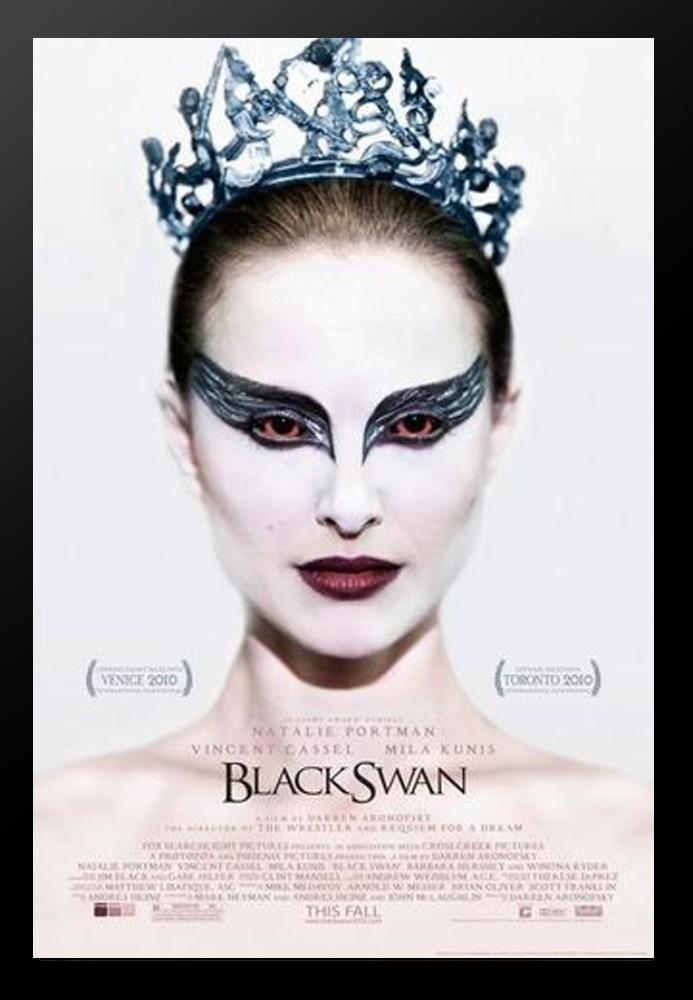
“Black Swan” (2010)
Darren Aronofsky began his career in the film industry over 20 years ago, releasing his first directorial debut in 1998. From then on, movie lovers were constantly awaiting his next project with eagerness and excitement; always surprised and affected by the depth and intellect his films accomplish. In 2010, fans and audience members alike were completely blown away by his sixth directorial project, “Black Swan.”
The film follows a young ballerina, Nina, who becomes completely consumed when given the title role in a New York ballet company's production of Swan Lake. Nina is portrayed to near perfection by Natalie Portman, who received her first Academy Award for Best Actress for the role, at no one's surprise. Portman is almost completely unrecognizable in the role, completely allowing the character and film to consume her, giving one of the best performances of not only her career, but the decade.
“Black Swan” addresses the important, interesting and sometimes terrifying topic of the obsessed artist, a topic so hard to accomplish with the grace and paradox of disturbing beauty that “Black Swan” did.
Never losing its momentum and grace, the film remains beautiful throughout the chaos, with captivating dance sequences intersected with the same essence of disturbia, shapeshifting, insanity, obsession and more; with most of the credit going to Portman’s acting, as well as Mark Heyman, John McLaughlin and Andres Heinz’s materful screenplay and Aronosky’s direction. “Black Swan” is no doubt one of the best films of the decade that audiences will surely never forget. —Lilly Adams
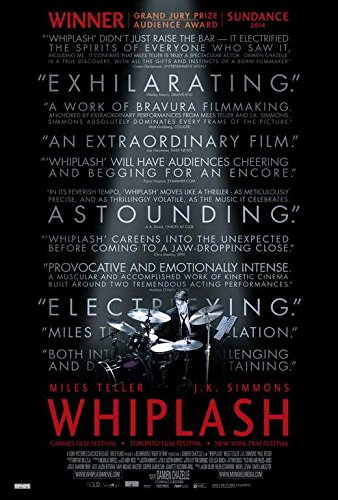
“Whiplash” (2014)
Very similar to “Black Swan,” “Whiplash” addresses the topic of an obsessed artist, minus the supernatural elements and ballet.
The film tells the story of troubled young jazz drummer, Andrew Neiman, played by Miles Teller, who longs to be among one of the “greats.” His cruel professor, Terrence Fletcher, an Academy Award winning performance for Best Supporting Actor by J.K Simmons, eventually leads Neiman into an all too realistic insanity and need to be the best drummer ever known.
This is renowned director Damien Chazelle’s second directorial project, breaking into the industry with full force, confidence, and excitement for the rest of his career. What is so amazing about “Whiplash” is it’s perfect balance between movie realism and the world the audience lives in. Yes, some moments are completely for dramatic effect but, throughout the film, in the back of every audience members mind is the terrifying reality that there are many Andrew Neimans in the world, as well as Terrence Fletchers.
That kind of subtle realism and discomfort of reality in a narrative film is so difficult to do as well as Chazelle did, and it no doubt launched him into the Hollywood stardom he so rightfully deserved. Balancing such realistic ideas as well as encapsulating the audience with fantastically made montages, dialogue, acting, direction and more, the film deserves a place as one of the best films of the decade. —Lilly Adams

“The Lighthouse” (2019)
Director Robert Eggers gifted cinema with the resurgence of the intelligent horror movie in 2015 with “The Witch,” and then simply left. He wasn’t given much thought or attention from film buffs during the last four years; they were too busy raving about the films that were created or existing simply because of him. Too busy being filled with disappointment in 2018 when “Green Book” decided to be the Best Picture of the Year, Eggers returned with a vengeance, and he did it with the masterpiece that is “The Lighthouse.”
The film has a small but massively talented cast of solely Robert Pattinson and Willem Dafoe. Eggers explored a new method to his horror movie making madness, excluding witches, creepy twins and talking goats, and instead giving us the very realistic and terrifying concept of two men, alone at sea for months, completely losing their minds.
The film would not have been nearly as good as it was if it wasn’t for the acting abilities of the two lead men, becoming completely unrecognizable as they lost themselves in their character, a tactic of method acting that is always captivating to watch.
As well as the acting, the film is shot on a 35mm black and white camera, stylistically turning it into one of the most interesting films to watch in recent years based off of visuals alone. Rather than consume the film, the film consumes the audience with it’s incredibly written dialogue, direction and, especially, the acting. —Lilly Adams
Lilly Adams is a junior majoring in film/video. To contact her, email lillyadams11@gmail.com.
Jade Campos is a sophomore majoring in print/digital journalism. To contact her, email jmc7727@psu.edu.
Scott Perdue is a junior majoring in secondary education. To contact him, email rsp5246@psu.edu.









